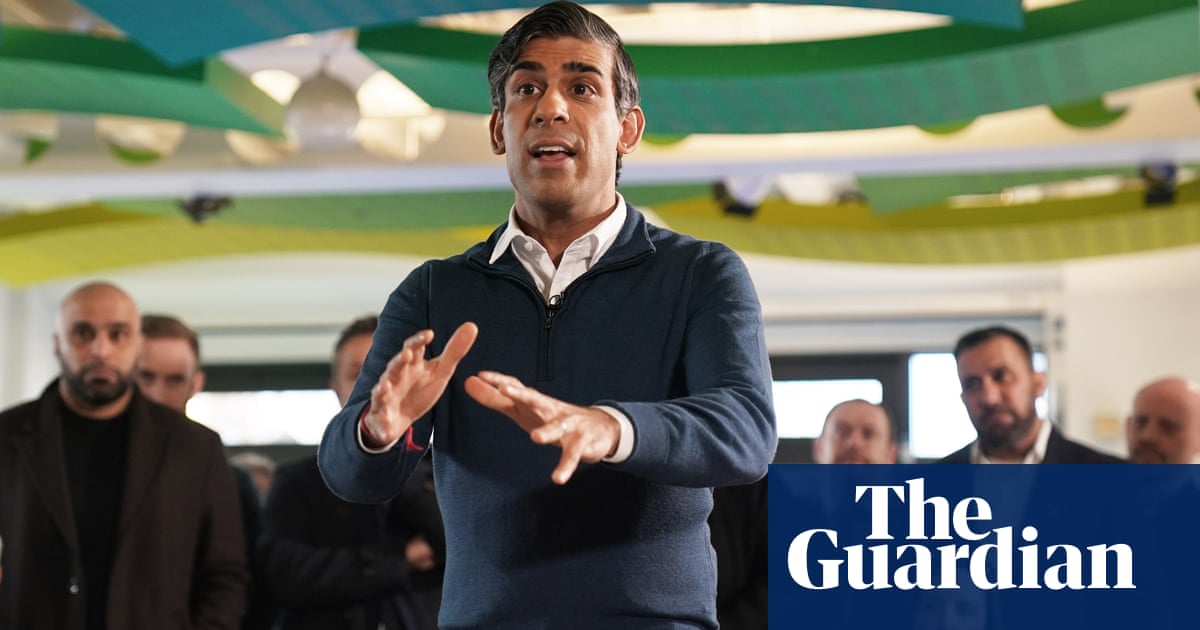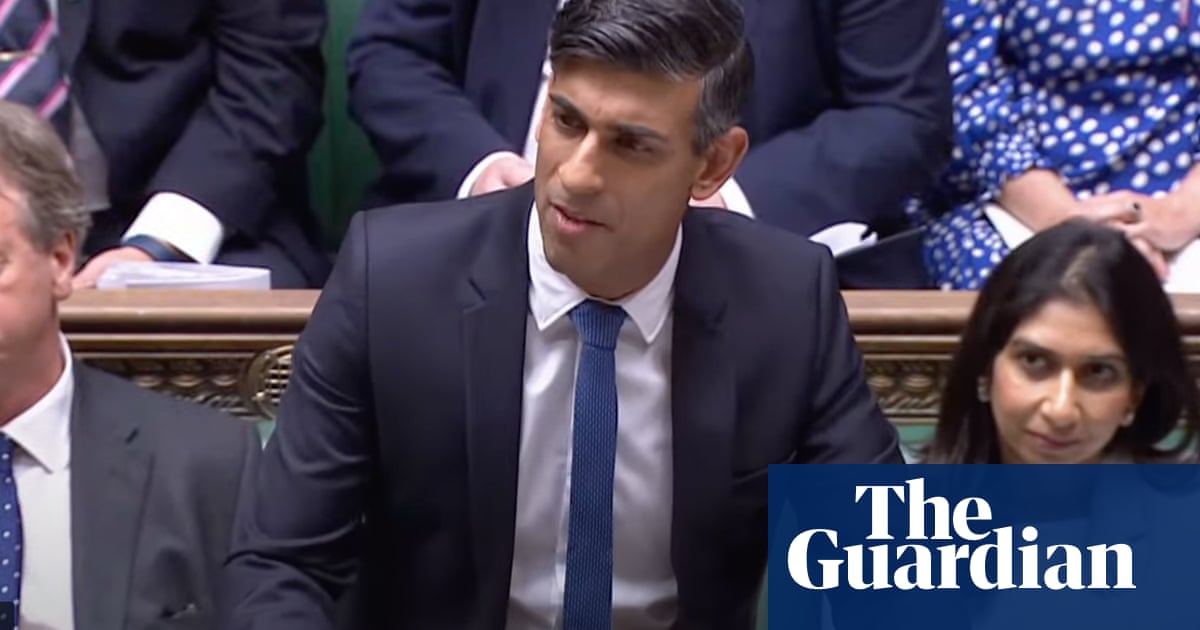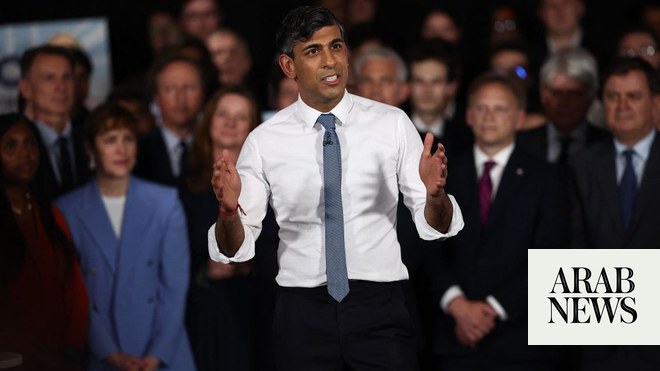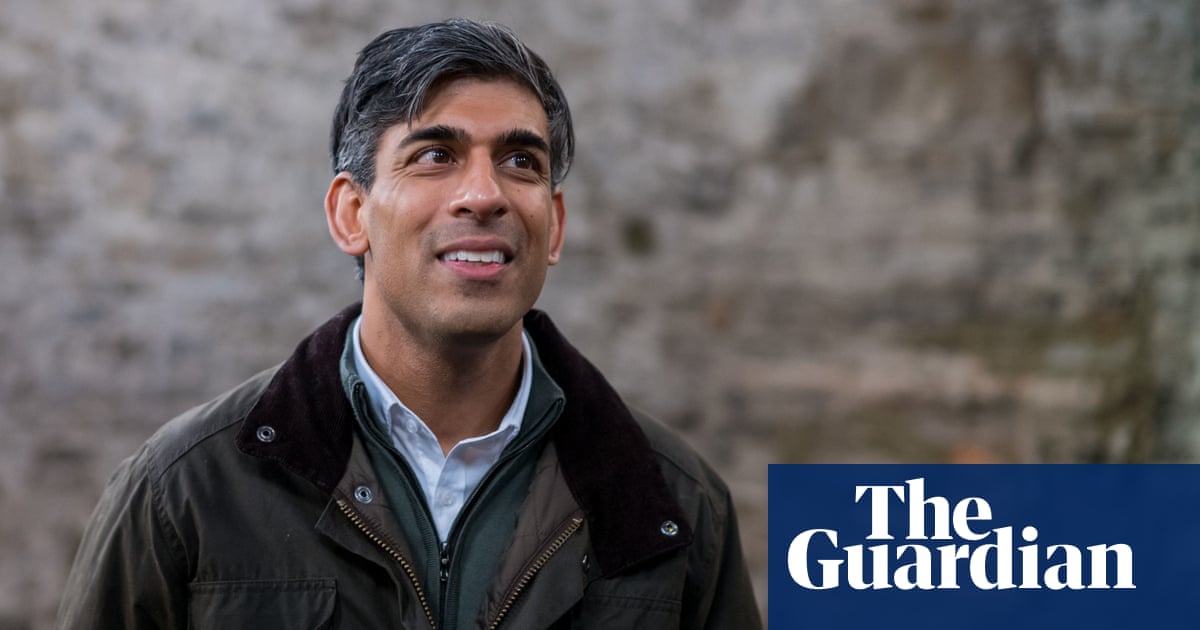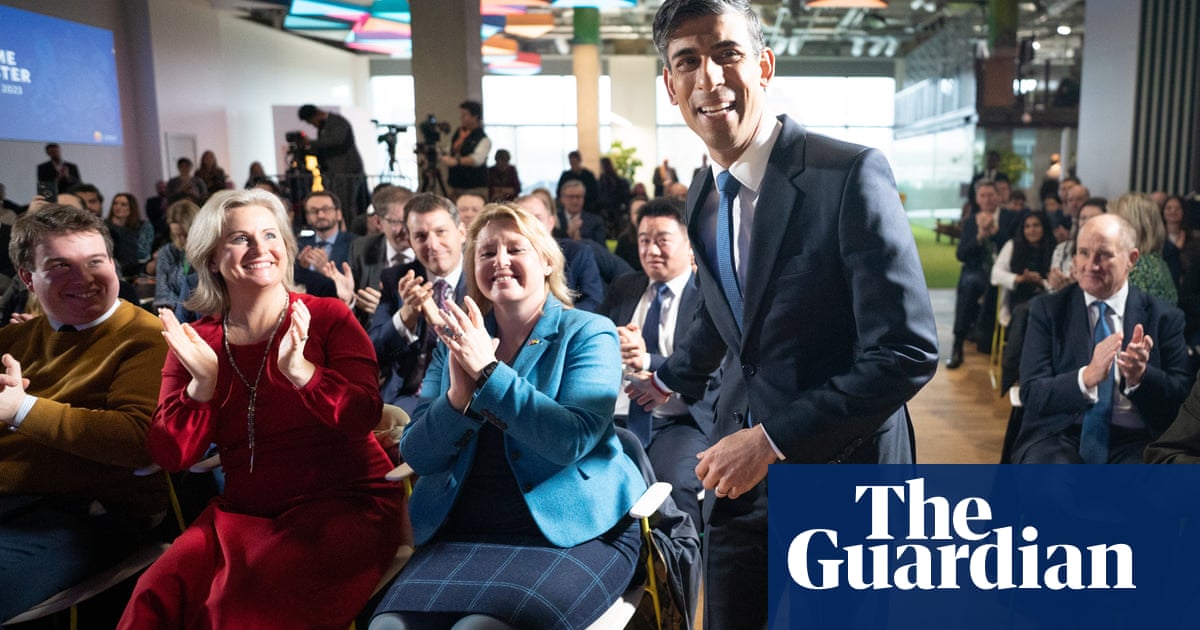
A defiant Rishi Sunak has vowed to fight on until the last day of the election campaign after a torrid weekend in which the prime minister was criticised for missing part of the D-day commemorations.
On the campaign trail in West Sussex on Monday, the prime minister said he believed he could still win back voters and he did not accept that the election result was a foregone conclusion.
Asked later if he had considered quitting, Sunak said “of course not” and said he was energised by the campaign. Over the weekend cabinet ministers were forced to insist that Sunak would not be replaced as leader during the course of the election campaign.
The prime minister was visiting a Horsham garden centre and a neighbourhood watch group, his first media appearance since his apology last week for missing part of the ceremonies in Normandy.
Horsham has a 21,127 Conservative majority and would normally be considered to be deep in the Conservative heartlands, 68th on the Liberal Democrats’ list of targets.
The prime minister also hit back at comments from the Reform UK leader, Nigel Farage, that his absence meant he was not “patriotic”, saying that insinuation was “not good for our politics or our country”.
Sunak said he was still fighting despite polls consistently showing he is 20 points behind. “But people are gonna say what they’re gonna say; what I’m doing is fighting very hard for every vote. I will keep doing that until the last day of this campaign. And I am very confident in the actions that we’re putting forward for the British people,” he said.
“There’s lots of people who want to write me off, write this off, say this campaign or the election is a foregone conclusion. They’ve been saying that, by the way, since I’ve gotten this job. But the reality is, I’m not going to stop going. I’m not going to stop fighting for the future of our country. I believe in what we are doing.”
The prime minister said he had spent the morning knocking on doors and said voters were “recognising and accepting that we are the party that have put forward big ideas for this country … people can see that in this campaign it is only the Conservatives have big ideas that can change our country for the better, and that started in the first week.”
Sunak’s reappearance on the campaign trail came as his former home secretary Suella Braverman said the Conservative party should be aiming to “unite the right” and find a way to work with Reform. Asked if he was concerned that Reform could overtake his party in the polls, Sunak repeatedly refused to engage with Farage’s party.
“I‘m not really interested in Reform, quite frankly, I’m interested in delivering for the British people with the agenda that I’m setting out,” Sunak said. “And I’m very clear about what I stand for, and the action that we’re prepared to take to deliver a more secure future for everybody.”
Farage was criticised over the weekend for comments he made about Sunak where he said the row over D-day showed he was “not a patriotic leader”.
The work and pensions secretary, Mel Stride, said the comments were “deeply regrettable” and added: “I feel very uncomfortable with that … And I’m very proud of the fact that we have a British Asian who is right at the top of our government.”
Asked whether he thought Farage’s comments were appropriate, Sunak said: “I can’t speak for him and what he meant by those comments. I’m not going to get involved in that because I don’t think it’s good for our politics, or indeed our country.”
Farage later doubled down on his accusations against Sunak, telling a press conference that the prime minister “has no connection with this country”.
He said: “I think to have shown over D-day that he didn’t even understand what it meant to be … He has no connection with the country whatsoever. This is your classic Winchester, Oxford, Goldman Sachs. Does he even meet ordinary people? I doubt it.
“If he understood what the centre of gravity in people’s hearts was in this country he would have been gone before the election. I would be very surprised if he resigned, but who knows.”
Sunak said in Horsham that he was sorry again for the upset caused by his early departure. “I absolutely didn’t mean to cause anyone any more upset, and that’s why I apologise unreservedly for the mistake that I made,” he said. “And I just hope people can find it in their hearts to forgive me and look at my actions that I’ve taken as prime minister to support our armed forces.”
Sunak and the Labour leader, Keir Starmer, are under pressure to explain how they would fund government spending after the election, after the Institute for Fiscal Studies repeated its criticism of both main parties over their economic plans.
The IFS director, Paul Johnson, said over the weekend: “The more that [political leaders] say ‘we’re not going to increase council tax’, ‘we’re not going to increase income tax’, national insurance contributions and so on, the more they tie themselves into either not being able to raise the money they need or raising it in ways which are actually more damaging.”
Starmer rejected that criticism on Monday, insisting that Labour could make its economic plans work by growing the economy.
“I know what the experts and commentators are saying, and what underpins what they’re saying is that you can’t carry on like this without a plan for growth,” he said. “It is always tempting for a government to go to tax and spend but I’m not going to pull those levers. We don’t intend to pull those levers. We want to go to the lever marked growth.”






